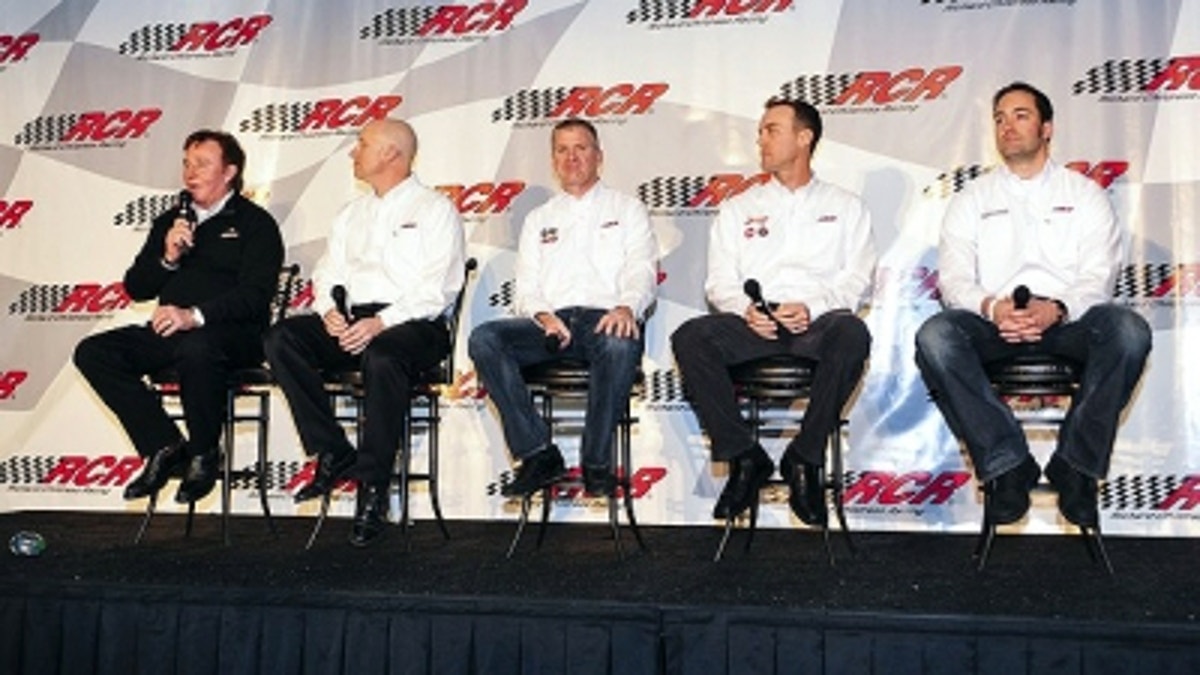
No one is more aware of the downslide at Richard Childress Racing than the man assigned to fix it – Dr. Eric Warren.
Warren was named last October as RCR’s director of competition with the not-so-simple task of resurrecting the team’s status as a leading Sprint Cup operation. It is perhaps not coincidental that the team’s only Sprint Cup win last season – Kevin Harvick’s victory in the next-to-last race of the year – came after Warren had been on the job a few weeks.
Now, with a full season ahead of him, Warren is at work trying to sew the pieces of RCR into a cohesive unit, one that will race from a position of strength despite the somewhat awkward situation at its center – the fact that Harvick, the team’s No. 1 driver, will be in a lame-duck year before he moves on to join Stewart-Haas Racing.
Warren, who has a degree in aerospace engineering but a long list of experience in motorsports, is trying to generate advances by changing the RCR organizational chart to one that is focused more on team cooperation.
“It’s a big change mostly from how the company is structured,” Warren said. “There really was no big change in personnel. The people here are phenomenal. But the Cup teams had kind of over the years diverged into acting somewhat like single-car teams.
“I recognized that early. Richard (team owner Richard Childress) and I talked about that even before I started work. It’s a little bit of a cultural shift, building some systems to where the cars are identical.
“The 2013 Chevrolet makes that easier. It’s more now about working together as a team. It sounds easy, but it gets difficult when you’re under pressure. When things get intense, the instinct is go your own way, but we need to find a balance of when to work together and when to get it done.”
The environment in many workplaces does not lend itself to dramatic change, a factor Warren took into account when he arrived and set up his office.
“I had a vision of what I wanted to see based on some past experiences,” he said. “Coming in, I had a pretty strong direction in mind. But I had to make sure the key people bought into it.
“You don’t want to just come in and drive something. You want to make sure people buy into the vision. If you try to force a vision and people don’t understand, they’re not going to buy in.”
Warren got some early proof-in-the-pudding with Harvick’s Phoenix win.
“It was really good to see the teams work together at Phoenix,” he said. “We had done the 2013 test there and went back for the race. The 27 team (Paul Menard) was the fastest most of the weekend. The 29 (Harvick’s team) guys basically switched to their setup, and it paid dividends.
“It’s a small thing, but to see the benefit of the communication was good.”
Warren said the organization can build from that momentum entering 2013.
“I’m cautiously optimistic,” he said. “I would like to think seeing how we ran at Phoenix and how competitive we were at other races near the end that that will build momentum.
“Teams are always up and down. In a normal cycle, if you catch the right momentum, people start to believe. And if you get people believing, it can change the world.”
Mike Hembree is NASCAR Editor for SPEED.com and has been covering motorsports for 31 years. He is a six-time winner of the National Motorsports Press Association Writer of the Year Award.
